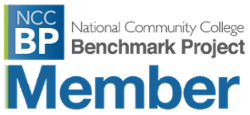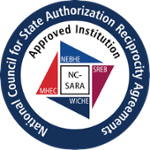Accreditation & Affiliations
Understanding Accreditation
In the United States, colleges and universities voluntarily seek institutional accreditation
from nongovernmental bodies. SVCC maintains institutional accreditation through the
Higher Learning Commission (HLC) which evaluates the entire college against the HLC's
criteria.
Higher Learning Commission of the North Central Association of Colleges and Schools
230 South LaSalle Street, Suite 7-500
Chicago, Illinois 60604
(800) 621-7440
www.ncahigherlearningcommission.org
SVCC's Accreditation History
The College first received institutional accreditation in March 1972 and has maintained
continued accreditation ever since. SVCC was most recently accredited in 2022 for
10 years. SVCC currently utilizes the Open Pathway to maintain accreditation with HLC.
Program Accreditation/Approval
-
The Certified Nursing Assistant (CNA) program is approved by the Illinois Department of Public Health.
-
The Radiologic Technology program is accredited by the Joint Review Committee on Education in Radiologic Technology.
The practical nursing program and associate nursing program at SVCC located in Dixon, Illinois is accredited by the: Accreditation Commission for Education in Nursing (ACEN).
3390 Peachtree Road NE, Suite 1400 Atlanta, GA 30326
(404) 975-5000
The most recent accreditation decision made by the ACEN Board of Commissioners for the practical nursing program is Initial Accreditation.
View the public information disclosed by the ACEN regarding this program on the ACEN website.
Affiliations |
||||
|
|
|
As a member of the National Community College Benchmark Project, SVCC compares itself to over 450 community colleges on metrics from persistence rates to distance learning outcomes, from student engagement to institutional effectiveness measures, from developmental success to student outcomes, and 150+ other benchmarks. |
||
|
|
|
SARAThe State Authorization Reciprocity Agreement (SARA) establishes a state-level reciprocity process that will support the nation in its efforts to increase the educational attainment of its people by making state authorization more efficient, effective and uniform. |
||

